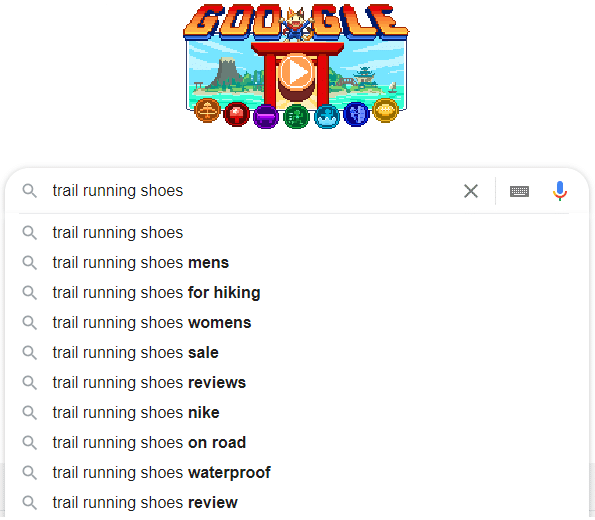It’s no secret that SEO — or Search Engine Optimization — best practices are a fundamental part of businesses’ success today.
Even if the concept of SEO still seems foreign to you, you probably know of its ability to boost businesses’ SERP ranking, thus improving visibility and engagement.
Traditionally, to implement an effective SEO strategy, it’s important to have a clear perception of your target audience, choose top keywords and produce captivating content.
Similar rules apply when it comes to B2B SEO, or Business-to-Business SEO.
Check out the following information to learn about what it takes to create a successful B2B SEO strategy in today’s competitive marketplace.
What is B2B SEO?
B2B SEO is the practice of optimizing a business’s website and online content so that they experience more organic traffic and sales conversions.
What distinguishes B2B companies from others is that they are selling to other businesses, not average customers. An example of B2B is a business that makes tires and then sells them to an automobile manufacturer.
B2B SEO is a reliable way to:
- Build an audience.
- Boost brand visibility.
- Develop a steady stream of customers.
In order to reach the largest audience possible, B2B SEO focuses on improving a business’s SERP ranking — for example, by using top keywords that users are searching for.
Search engines like Google are committed to helping users navigate the Internet by showing them the content that they want to see most.
By implementing a B2B SEO strategy, businesses like yours can help search engines index your website’s information and show it to the customers that are most likely to need your products or services.
What do search engines look for when ranking different companies?
In order to implement a successful B2B SEO strategy, it’s essential to understand this.
Search engines like Google consider hundreds of factors to determine a website’s SEO performance. These factors can be broken down into the following three categories.
On-page non-technical SEO
The first type of optimization that search engines look for is called “on-page non-technical SEO.”
Sometimes referred to as “content SEO”, these optimizations have to do with proper keyword usage in content, titles and meta descriptions and how a business’s web design affects user experience.
On-page technical SEO
On the other hand, “on-page technical SEO” has to do with factors like page load speed, mobile optimization, structured data markup, SSL and AMP.
These types of optimizations are commonly referred to as “technical SEO”.
Off-page SEO
Lastly, “off-page SEO” is everything not on your website that contributes to your SEO performance.
It mostly has to do with backlinks or external links that point to your website. Backlinks are key to developing an outstanding brand reputation, and their quality is far more important than quantity.
B2B vs B2C SEO: Is There a Difference?
B2B SEO and B2C SEO are essentially two sides of the same coin.
B2B SEO focuses on optimizing content for other businesses that might purchase the first business’s products or services.
Many manufacturers are classic examples of B2B commerce, whether it’s a business that produces and sells auto parts to a car manufacturer or a business like Xerox that provides businesses with paper and print services.
B2C SEO, however, is meant to optimize businesses’ websites and online content to attract customers of the general public.
While detailed descriptions and demos are welcome in B2B commerce, B2C commerce is generally less technical and detailed.
Instead, it focuses on capturing a target audience’s attention and leading prospects through the conversion funnel.
Why is SEO Important for B2B?
There are numerous benefits to implementing a dedicated B2B SEO strategy. Let’s take a closer look at them.
Improve Your Brand Visibility
There’s no doubt that search engines are an irreplaceable tool for customers (in this case, fellow businesses) to find products or services online.
By taking steps to adopt SEO best practices, businesses can significantly expand their reach and brand awareness among prospects — notably by improving their SERP ranking.
Pinpointing the keywords that your audience is searching for can help your business rise to the top of the SERP, thus making you more visible to potential clients.
Another way to ensure your rise to the top is to produce 100% unique content that is both informative and engaging.
Search engines want to show users high-quality content.
By raising the bar for the content you produce (while including relevant keywords for your target audience), your business can enjoy enhanced brand visibility.
Boost Conversions
Because a B2B SEO strategy is meant to help capture your target audience’s attention, it naturally enhances your sales conversions.
After all, getting prospects’ attention is the first step to guiding them down the conversion funnel, ultimately leading to a sale.
You can show prospects that your business offers legitimate, high-quality products or services by publishing detailed, long-form content that answers their most pressing questions.
Top-notch content, combined with an optimized website and high SERP ranking, will encourage prospects to become loyal, paying customers.
In this way, B2B SEO helps boost businesses’ conversions, whether in regards to sales, sign-ups or subscriptions — to name a few options.
Boost Industry Credibility
Each of the B2B SEO practices mentioned above, combined with link building, helps improve your business’s industry reputation and credibility with customers.
Customers have come to expect only the “best” businesses to appear at the top of the SERP page.
By implementing a thorough B2B SEO strategy, you can boost your ranking, creating a number of recurring benefits when interacting with potential customers.
Along with having a high ranking on the SERP, you can also position your business as an industry leader by producing exceptional content that earns backlinks.
The more you are referenced by other credible websites, the more customers will see you as a reliable entity that can be trusted with their business.
How Do You Build a B2B SEO Strategy?
Now that we’ve covered the various advantages of a B2B SEO strategy, it’s time to discuss how to create your own.
While the specifics of each B2B SEO strategy will depend on the business’s respective audience, products or services and goals, four universal steps hold true to create a B2B SEO approach that wins customers and boosts overall growth.
Check out each of these steps in greater detail below.
1. Create Audience Personas
The first step to creating an effective B2B SEO strategy is identifying your target audience — also known as audience personas.
This will provide valuable direction to your SEO strategy. After all, if you don’t know who you’re pitching to, how can you expect to make a sale?
Determining B2B audience personas is generally less straightforward than determining B2C personas.
For example, the typical B2C audience for something like a sportswear company would be people interested in working out or wearing casual clothing.
However, B2B companies need to figure out who they need to connect with within their target businesses. This person might be:
- An inventory manager.
- A department buyer.
- A manager.
- A CFO.
Determine who you need to target to make a sale, and construct a persona around them.
What’s their industry, age, interests, demographic and ranking within their company? This crucial information will help you implement a hard-hitting B2B SEO strategy.
2. Conduct Keyword Research
Once you’ve identified your target audience, it’s time to find out how they search for similar products and services that you provide.
In other words, you need to root out the keywords that will lead you to your target audience.
It’s most profitable to connect with prospects who are on the verge of making a purchase, so start by identifying “bottom of the funnel” keywords.
These are the keywords your prospects will type into a search engine when they’re ready to become a paying customer for your product or service.
Start by looking at your competitors’ websites and content.
Which terms are they using repeatedly? Chances are, these are keywords that resonate with your audience.
Google’s autocomplete feature can also clue you into which long-tail keywords your audience is searching for.
Simply start typing a keyword and see what Google suggests. For example:

Remember, the more specific you are with your keywords, the more easily you’ll be able to establish your industry niche and connect with future customers.
3. Gather Backlinks
Yet another effective way to create a B2B SEO strategy is to gather backlinks.
They show your audience that you are a reliable source of information and that you offer high-quality products or services that are worth a referral.
In this way, backlinks from reputable sites can take your business’s B2B SEO to the next level. That said, how can you gather backlinks from authority and news sites?
The most basic answer is to create content that’s worth linking.
If you publish highly informative, thorough content, you’re more likely to receive helpful backlinks that boost your SERP ranking.
You can also try to form partnerships with reputable sources by including links to their website in your content.
When it comes to backlinks, it’s crucial to stay authentic.
Don’t engage in phony backlink exchanges — it won’t prove profitable in the long run, and you could be penalized on search engines like Google.
4. Map Out Your 100% Unique Content Strategy Plan
Last but not least, publishing original content is sure to help you build an effective B2B SEO strategy.
Take a diversified approach to your content strategy by creating an editorial calendar for several different platforms.
Find out what your target audience really wants to know, and plan content around those topics.
When creating your top-notch content, don’t forget the SEO basics. Use relevant keywords several times — without engaging in keyword stuffing.
Link new content internally so that visitors on your website are more likely to discover your blogs, articles and posts elsewhere.
It’s important that businesses produce content that’s detailed, well-researched and fresh.
Plagiarizing another source’s content or pigging-backing off of others’ ideas won’t get you very far when it comes to B2B SEO.
However, being a “thought leader” will show your audience that you have the initiative and originality needed to surpass competitors.
5. Optimize Your B2B Content
Almost every B2B business has a large amount of existing B2B content on their website.
However, this content is often thin, poorly-written, without purpose, and not optimized at all for B2B SEO.
This content, however, can be repurposed and updated so that it is working for you, not against you.
Take a look at your B2B content and see what is currently performing well. You can take that content and optimize it by adding keywords, adding length, updating CTAs and links, making sure that meta data is accurate and updated.
This will help you get the most out of your existing content and make sure that your SEO strategy is clear throughout your entire database of content.
6. Don’t Forget About Link Building
Link building is an incredibly important part of a B2B SEO strategy.
While many businesses already have internal links in their blogs that lead to other web pages and articles, they forget to get external links from other websites.
An external link does many things. It helps increase the amount of incoming traffic your website has, and it also helps you get your content in front of a new audience.
Most importantly, external links show search engine algorithms that your website is an authority in your industry.
When other websites put trust in your business and voluntarily choose to link to your pages, they show the algorithm that your website is an industry leader and a source of authority.
This increases the possibilities you have of ranking high on search engines and outperforming your competitors.
For more information on link building, check out this video from Brian Dean:
How to Create B2B Content that Really Converts
In order to find real success with a B2B SEO strategy, you need to focus your content creation around conversions.
Conversions occur when your leads and readers take an action that moves them further down the sales pipeline.
This not only helps your sales but increases your B2B SEO as search engines understand the value of what your content provides.
1. Find Gaps in Existing Content
Your SEO for B2B needs to focus on relevant, helpful content.
The content you provide needs to be interesting to people and give them new information that they can’t find elsewhere.
One way to accomplish this goal is to search through existing content and find out where there are gaps in the content.
This can be done with the help of keyword research and examining your own content filters.
When you can start to identify where there are knowledge gaps and areas where content is thin, you can begin to fill those gaps with your own content strategy.
This can help your SEO for B2B businesses grow, and establishes you as an authority and thought leader in the industry.
Search engines will recognize that you are a leader, and will put more trust in your website and pages.
2. Make Each Piece of Content Serve a Purpose
Every piece of content you publish needs to have a goal.
A B2B SEO strategy depends on having goals for your content. By having a roadmap for each article or blog you publish, you can guide your readers towards a conversion and help them understand where they should go after they finish reading the content.
Think about the next steps or next action that you want your readers to take.
Do you want them to visit a landing page, or check out your solutions? Think about what makes the most sense and how you can gently direct readers in that direction.
By having purpose in each article, you can increase conversions.
3. Offer Value
In order to get even more conversions, it’s important that you offer value to readers.
That can come in the form of the written content you have on the blog or article page, but there is much more you can do.
Things like infographics, images, videos, calculators, and links to whitepapers or eBooks can all help you provide value and delight your readers.
4. Be Honest
Your B2B content should never extend beyond your areas of expertise.
Make sure that your content highlights the true nature of the company itself, and showcases your strengths.
By showing off in the places where you excel, you can give readers important insights and discoveries that are really valuable to them.
In the same vein, it’s important for you to be honest and share examples of your failures.
By being honest and showing how the company has navigated through challenges, you can give readers meaningful takeaways and ideas on how they can pivot and adapt through difficulty.
5. Think About Readability
Sometimes B2B content ends up being overly wordy and complicated in an effort to appear intelligent and authoritative.
However, readability and scannability are still important factors that search engine algorithms take into consideration.
The content in your B2B SEO strategy needs to be accessible to people of many different levels of expertise.
You may also be interested in these articles:
- How to Add B2B Content Syndication to Your Marketing Strategy
- Improve Your 2022 SEO Strategy with These Crucial SEO Statistics
- What Your Business Needs to Know About B2B Digital Marketing Strategies
Wrap Up
B2B SEO is an essential tool to help your business develop a target audience with steady conversions and growing brand awareness.
As opposed to B2C SEO, B2B SEO should be tailored to target businesses’ needs, interests and goals.
By following the four steps above, you will improve your SERP ranking, audience engagement and overall sales.
To find out how well your business’s current SEO strategy is performing, check out Rock Content’s SEO Maturity Assessment!






![[ROCK NA] [EBOOK SEO] Complete Guide](https://rockcontent.com/wp-content/uploads/2024/06/banner_Search-Engine-Optimization.png)






